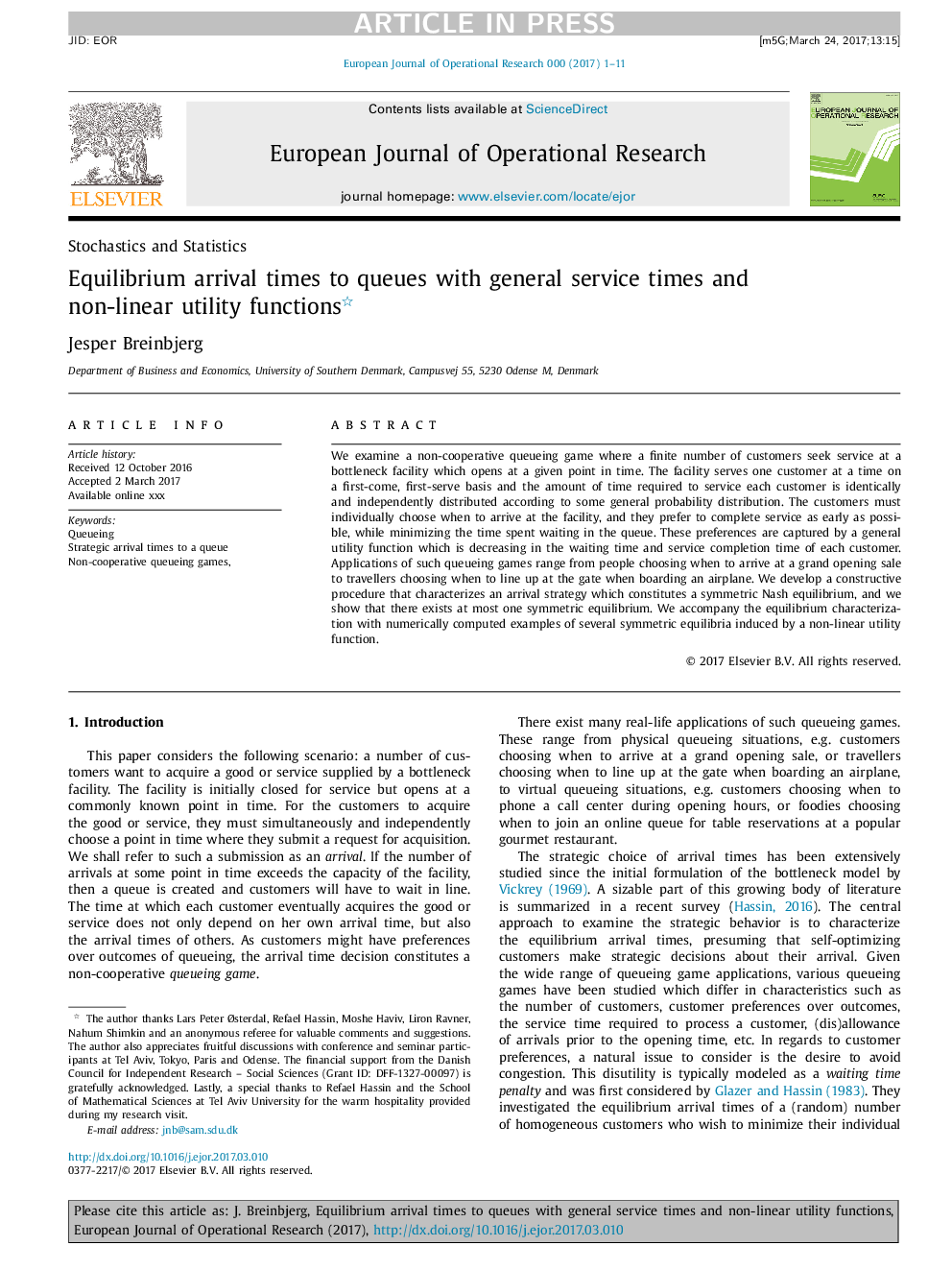| Article ID | Journal | Published Year | Pages | File Type |
|---|---|---|---|---|
| 4959643 | European Journal of Operational Research | 2017 | 11 Pages |
Abstract
We examine a non-cooperative queueing game where a finite number of customers seek service at a bottleneck facility which opens at a given point in time. The facility serves one customer at a time on a first-come, first-serve basis and the amount of time required to service each customer is identically and independently distributed according to some general probability distribution. The customers must individually choose when to arrive at the facility, and they prefer to complete service as early as possible, while minimizing the time spent waiting in the queue. These preferences are captured by a general utility function which is decreasing in the waiting time and service completion time of each customer. Applications of such queueing games range from people choosing when to arrive at a grand opening sale to travellers choosing when to line up at the gate when boarding an airplane. We develop a constructive procedure that characterizes an arrival strategy which constitutes a symmetric Nash equilibrium, and we show that there exists at most one symmetric equilibrium. We accompany the equilibrium characterization with numerically computed examples of several symmetric equilibria induced by a non-linear utility function.
Keywords
Related Topics
Physical Sciences and Engineering
Computer Science
Computer Science (General)
Authors
Jesper Breinbjerg,
